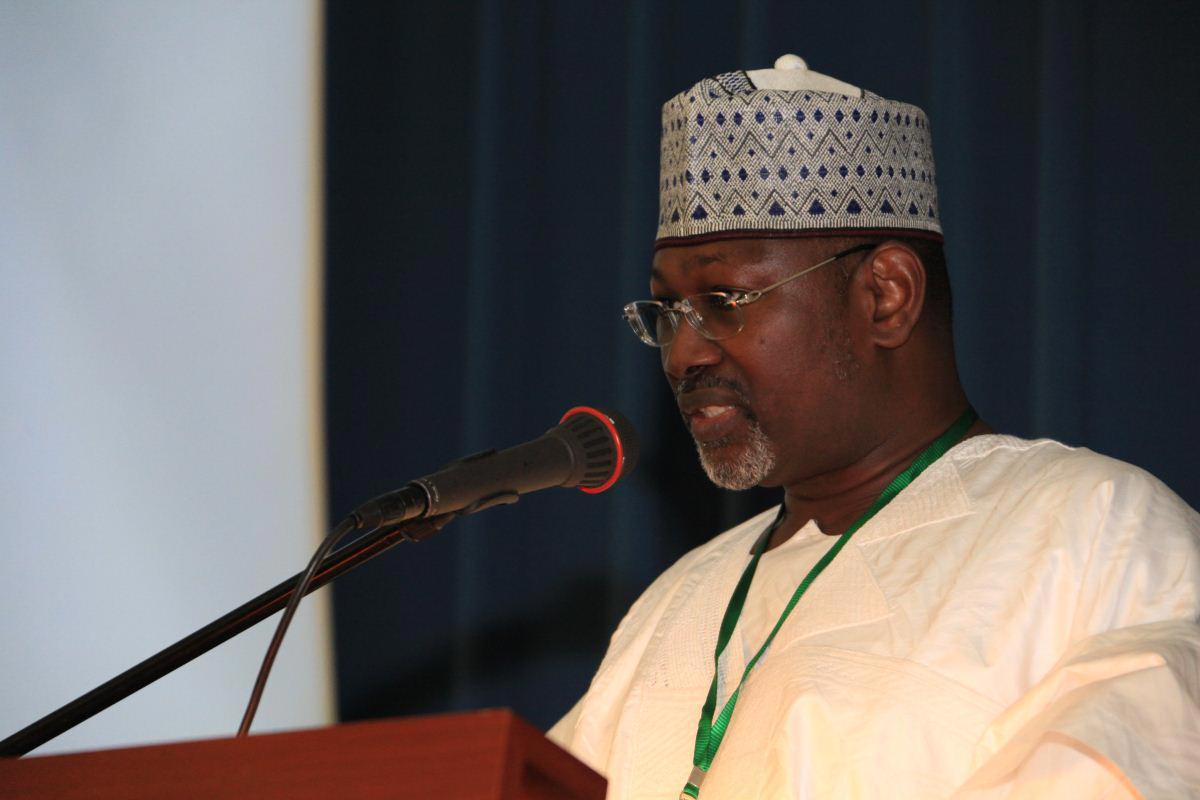The chairman of the Independent National Electoral Commission (INEC), Attahiru Jega, has expressed support for a bill by the Federal House of Representatives seeking to enable INEC to control the movement of military and other sister security outfits during elections.
At a public hearing organised by the house of representatives, Nigeria’s lower legislative chamber on Tuesday, August 19, 2014, Jega declared support for the bill which seeks an amendment to section 29(1) limiting the role of the military “securing the distribution and delivery of electoral materials”.
Following the heavy presence of military personnel in Ekiti and Osun states in recently concluded elections in both states, the federal government has come under considerable fire with the opposing All Progressives Congress (APC) accusing the ruling Peoples Democratic Party (PDP) of using the military to their advantage.
President Jonathan, whose response was echoed by acting inspector general of police, Suleiman Abba defended the deployment of military operatives in Osun state, stating that it was to avert any premeditated plans to manipulate the election as the election was eventually won by governor Rauf Aregbesola, the incumbent governor from APC.
Premium Times reports
At the public hearing organised by the House of Representatives Committee on Electoral Matters, Mr. Jega said the proposed bill would indeed ensure that a level playing field was provided for all participants in the electoral process and that it was in agreement with what obtains all over the world.
“On the insertion of a new Section 29 (1) (b) to empower INEC to control security agencies at election time, there are a few countries that are doing this because they feel it is a good practice,” he said. “In fact, in some of the countries, the entire management of the security forces in the period of the election is given to the electoral management body. We did not recommend this because people are already accusing us of taking too much power. But if other stakeholders agree with this recommendation, it would help sanitise the electoral process.”
The INEC chairman also backed a proposed amendment of the Act to pave way for the introduction of Electronic and Diaspora voting as well as the extension of the time to conduct run-off election for the offices of the president and governor. He called for a shift of the conduct of a run0ff election from seven days to three weeks and 41 days. According to him, this was the practice in other democracies.
Mr. Jega however ruled out the possibility of Nigerians in the Diaspora voting during the 2015 general elections because of the late amendment of the 1999 Constitution. He however said they would be accommodated in future elections.
On the electronic voting, the INEC chairman, who disclosed that the Commission proposed 23 amendments to the Electoral Act 2006, said it would not also be used in the 2015 poll. Declaring the public hearing open, the Speaker of the House of Representatives, Aminu Tambuwal, said the amendment process was aimed at providing a level playing field for the next elections. According to him, this would ensure free, fair and credible conduct of the polls. “As we approach the date for national general elections, it is important that we tidy up every aspect of the regulations governing the conduct of our elections. “We believe that if our electoral law is technically and morally sound, it will go a long way in ensuring that we have free and fair elections in 2015 and beyond.
For the avoidance of doubt, the purpose of this Act is to ensure a level playing field for all participants in the electoral process and for a more transparent process of conducting elections in Nigeria,” the speaker said. “In a way, it is sad that 15 years after the return of our great country to democratic rule we are still talking about free and fair elections, autonomy of INEC, legal frame work of states’ INEC, time frame of elections, participation of physically challenged persons in our elections, conduct of politicians, internal party democracy, order of elections, voters’ registration and accreditation, and debates by candidates, just to mention a few. “However, we must look at democracy as a journey towards establishing for our nation a more perfect system of government. So, at every stage, we must be willing to take corrective measures that will ensure that we do not miss our way and arrive at the wrong destination.”







